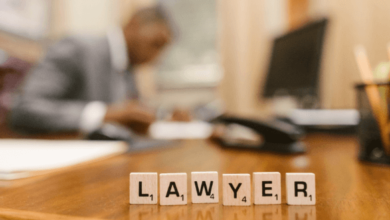Why Is Negligence Important To Security Officers

You play a key role in keeping people safe. Your actions can mean the difference between safety and risk. Negligence is not just a word you hear in passing. For security officers, it is a serious issue that can have real consequences. When you overlook something or fail to act, the danger increases. Mistakes can lead to harm, legal action, or property damage. Your focus and attention are crucial in preventing problems before they start. Understanding negligence helps you stay alert and aware. It ensures that you meet your duties and protect those around you. The Quinn Law Group highlights the importance of knowing what negligence means for you. They stress that staying informed and aware can prevent many issues. Your responsibility is not just a job. It is a commitment to maintaining trust and ensuring the safety of everyone you serve.
Understanding Negligence
Negligence happens when you fail to take proper care in doing something. As a security officer, negligence could mean not locking doors, ignoring alarms, or failing to report suspicious activity. These lapses can have serious effects. Knowing what actions or inactions count as negligence helps you stay vigilant. It is essential to recognize potential risks and act before they become real threats.
See also: What You Should Know Before Hiring a Divorce Lawyer in Sydney
Legal Implications
Negligence can lead to significant legal consequences. If someone suffers harm because of your oversight, you could face lawsuits. The law requires you to act with care and diligence. Being negligent not only puts others at risk but also places your career in jeopardy. Regular training and awareness can help reduce these risks. This OSHA guide on regulations provides insight into requirements for maintaining a safe environment.
Impact on Reputation
Your reputation as a security officer is built on trust. When negligence occurs, trust can erode quickly. Clients and employers expect you to handle situations with care and responsibility. A single instance of negligence can tarnish your reputation and affect job opportunities. Keeping your reputation intact involves consistently demonstrating reliability and professionalism.
Preventive Measures
You can take several steps to avoid negligence. Firstly, always follow the protocols set by your employer. Staying updated with training ensures you understand your responsibilities. Communication is another key preventive measure. Always report any irregularities immediately. A proactive approach helps in identifying and mitigating risks before they escalate.
Importance of Training
Regular training keeps you informed about new threats and how to handle them. Training sessions often cover scenarios where negligence might occur. Participating in these helps you recognize and avoid common pitfalls. Staying educated on the latest security trends and practices is essential for effective performance.
Consequences of Negligence
To better understand the impact of negligence, consider the following table that outlines common consequences faced by security officers:
| Type of Negligence | Potential Consequence |
| Ignoring alarms | Increased risk of unauthorized access |
| Failing to report incidents | Legal action and loss of trust |
| Not performing routine checks | Damage to property or assets |
Building a Safety Culture
A strong safety culture within your workplace can significantly reduce negligence. Encourage open communication among team members. Share knowledge and experiences to learn from each other. A team that prioritizes safety creates a more secure environment for everyone.
Conclusion
Negligence is a serious concern for security officers. By understanding its implications and actively preventing it, you can protect those you serve. Staying informed, trained, and attentive are crucial steps. The responsibility you hold is significant, and you must approach it with dedication and care. Your actions are not just about maintaining security. They reflect your commitment to safety and trust.


